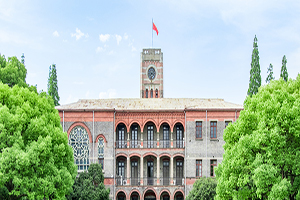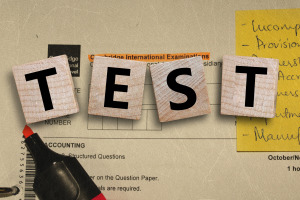環(huán)球卓越:2010年同等學(xué)力英語(yǔ)考點(diǎn)特訓(xùn)之閱讀(三)
Late-night drinking
Coffee lovers beware. Having a quick “pick-me-up” cup of coffee late in the day will play havoc with your sleep. As well as being a stimulant, caffeine interrupts the flow of melatonin, the brain hormone that sends people into a sleep.
Melatonin levels normally start to rise about two hours before bedtime. Levels then peak between 2 a.m. and 4 a. m, before falling again. “It’s the neurohormone that controls our sleep and tells our body when to sleep and when to wake,” says Maurice Ohayon of the Stanford Sleep Epidemiklogy Research Center at Stanford University in California. But researchers in Israel have found that caffeinated coffee halves the body’s levels of this sleep hormone.
Lotan Shilo and a team at the Sapir Medical Center in Tel Aviv University found that six volunteers slept less well after a cup of caffeinated coffee than after drinking the same amount of decaf. On average, subjects slept 336 minutes per night after drinking caffeinated coffee, compared with 415 minutes after decaf. They also took half an hour to drop off---twice as long as usual---and jigged around in twice as much.
In the second phase of the experiment, the researchers woke the volunteers every three hours and asked them to give a urine sample. Shilo measured concentrations of abreakers were half those in decaf drinkers. The results suggest that melatonin concentrations in caffeine drinkers were half those in decaf drinkers. In a paper accepted for publication in Sleep Medicine, the researchers suggest that caffeine blocks production of the enzyme the drives melatonin production.
Because it can take many hours to eliminate caffeine from the body, Ohayon recommends that coffee lovers switch to decaf after lunch.
1. The author mentions “pick-me-up” to indicate that ______.
A. melatonin levels need to be raised.
B. Neurohormone can wake us up.
C. Coffee is stimulant.
D. Decaf is a caffeinated coffee.
2. Which of the following tells us how caffeine affects sleep?
A. Caffeine blocks production of the enzyme that stops melatonin production.
B. Caffeine interrupts the flow of sleep hormone.
C. Caffeine halves the body’s levels of sleep hormone.
D. Caffeine stays in the body for many hours.
3. What does paragraph 3 mainly discuss?
A. Different effects of caffeinated coffee and decaf on sleep.
B. Different findings of Lotan Shilo and a team about caffeine.
C. The fact that the subjects slept 415 minutes per night after drinking decaf.
D. The evidence that the subjects took half an hour to fall asleep.
4. What does the experiment mentioned in paragraph in paragraph 4 prove?
A. There are more enzymes in decaf drinkers’ urine sample.
B. There are more melatonin concentrations in caffeine drinkers' urine sample.
C. Decaf drinkers produce less melatonin.
D. Caffeine drinkers produce less sleep hormone.
5. The author of this passage probably agrees that ______.
A. coffee lovers sleep less than those who do not drink coffee.
B. We should not drink coffee after supper.
C. People sleep more soundly at midnight than at 3 a.m.
D. If we feel sleepy at night, we should go to bed immediately.
特別聲明:①凡本網(wǎng)注明稿件來(lái)源為"原創(chuàng)"的,轉(zhuǎn)載必須注明"稿件來(lái)源:育路網(wǎng)",違者將依法追究責(zé)任;
②部分稿件來(lái)源于網(wǎng)絡(luò),如有侵權(quán),請(qǐng)聯(lián)系我們溝通解決。
一站式擇校服務(wù)!【免費(fèi)領(lǐng)取】專業(yè)規(guī)劃&擇校方案

- 2020同等學(xué)力申碩綜合考試難嗎?
同等學(xué)力申碩考試科目有綜合和外語(yǔ)兩門,關(guān)于這兩門科目的考試難度,是同學(xué)們比較關(guān)心的。那么,我們來(lái)看看同等學(xué)力申碩綜合
0贊0評(píng)論2020-04-28 09:03:18

- 2019同等學(xué)力經(jīng)濟(jì)綜合考試考點(diǎn)、重點(diǎn)分析
同等學(xué)力考試馬上就要開(kāi)始了,同學(xué)們應(yīng)該緊鑼密鼓的開(kāi)始同等學(xué)力申碩考試的學(xué)習(xí)。小編為大家整理了同等學(xué)力申碩經(jīng)濟(jì)重點(diǎn)考試
0贊0評(píng)論2019-04-19 10:54:37





















評(píng)論0
“無(wú)需登錄,可直接評(píng)論...”